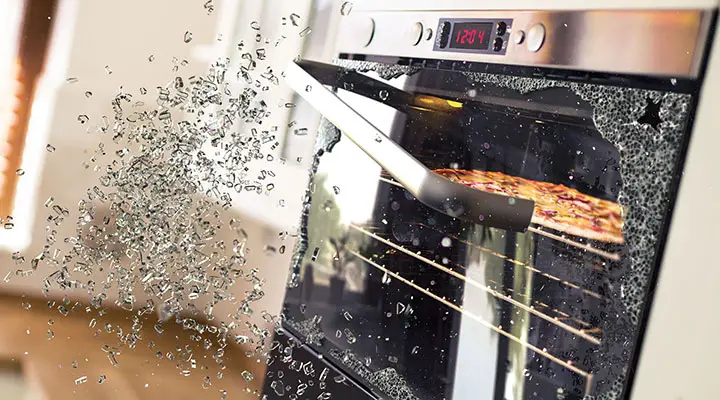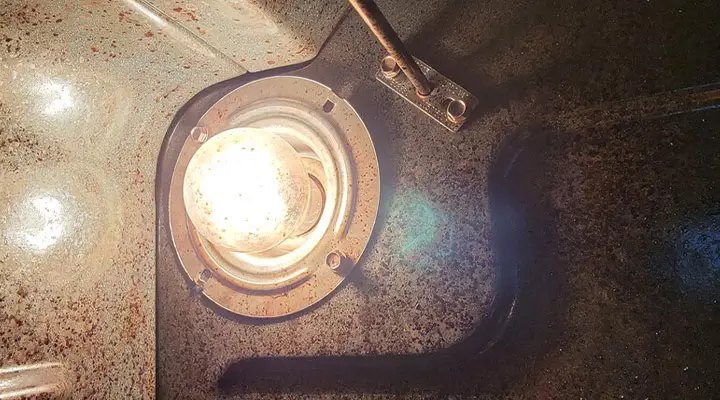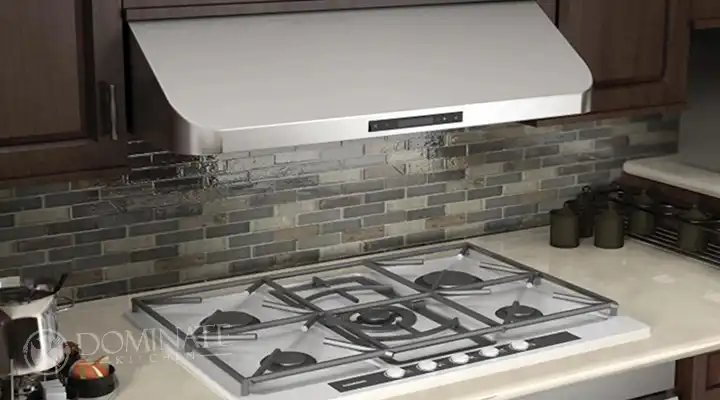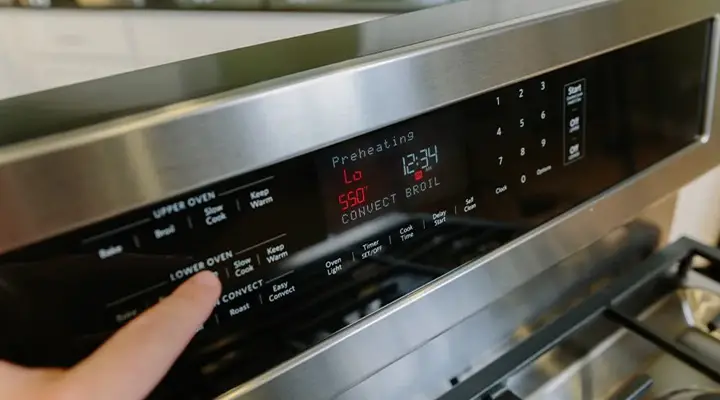Can An Oven Blow Up? How to Prevent It?
Although oven explosions are rare, they’re not impossible either. It can explode without giving any warning. An oven can definitely blow up when there’s any fault in the system. But no one can give any guarantee of the electric device.
Therefore, you need to find out the reasons behind the explosion in your electric oven and of course the result. You also need to figure out how to handle the situation. Thus, another burning question that you need to answer for your own safety is how to minimize the risk. Let’s dive into the topic.

Boom!! What Does Happen When An Oven Explodes?
If you have ever faced any type of explosion from your oven, then know that you are not the only one with whom it has happened. The explosion can affect the inside of the oven, like wires, and heaters, and the outside of the oven, like the glass doors as well.
What Does Cause An Oven explosion?
When an oven explodes, the heating elements of that oven make that happen. The coil range element loses and develops broken wires or damages the element socket or coil. These kinds of defects are the reasons behind oven explosions.
Defective Heating Element: The Reasons Behind The Blow-Up
The heating element of an electric oven can face explosion due to three main reasons. Those are electrical defects, overheating of the metal elements, and damage to heating elements. This results in an oven exploding with a bang sound and bright sparks within the compartment. It can also break the glass door.
1. Electrical Defects
The first electrical fault that can occur easily is a loose connection. Specifically, the loose connection between the heating element and the power supply wire of the oven needs to be mentioned here. When the heating element is tightly and properly connected to its power source, the current can flow through this without any trouble. But if a loose connection happens, the power cannot flow in a proper way as it causes high resistance and makes the flow tough. So, there will be a consequence of temperature rise for which there can be fire and explosion.
Here is an idea about what can you do in this situation. If you sense the loose connection, you have to switch off the appliance and let it cool for a while. Then remove the heating element and clean the dirt around the wires. Otherwise, the specks of dirt will prevent you to repair the loose connection. Push the connection firmly and after testing, you can use it again.
Secondly, exposed wires can cause the heating element to explode. When the receptacle wire is exposed to air, that can create an electric arc. Then that touches the nearly metal part, as such the heating element. That arc will allow the air to expand very fast and create an explosion. To solve this problem, buy new wires or buy a whole new kit of receptacles wirings. A short circuit is another cause for which there can be a blow-up of your oven.
2. Overheating of Heating Element
When the temperature raises more than the heating element can sustain, the chances of the explosion increase more at that time. There are wires and metal parts in the heating element that contains high electrical resistance. The current flows through those elements, which produces a lot of heat.
To prevent those wires from getting touched directly, there is a sheath that wraps the material. But as the electric flow goes up and down sometimes, the temperature also becomes unsustainable for the sheath. That causes the oven to blow up.
Another reason behind this overheating process is faults of thermostats which gives the wrong signal and makes the temperature higher than the temperature you would set. A faulty control board is also a reason. That can run your oven even when you have turned the switch off.
Moreover, failed temperature sensors cannot detect excessive heat or temperature. So, these are the reason why your heating element can be heated excessively.
3. Damage to Heating Element
Sometimes it is seen that none other than the heating element itself is damaged. There can be several reasons behind it. One of the main reasons is that if you use the same heating element for too many years, then that element easily faces damage. Maximum times this reason is found as the root cause.
Except that, when you turn the oven on, the heating plate of it goes through the process of expansion and contraction. Because of this repetitive process, there can be cracks, holes, and other internal breaking of wires in the heating element.
In that case, repairing is not the solution that you are looking for. You have to buy a new heating element. You just have to detect whether the element is damaged or not. Thus you can avoid the explosion.
How To Prevent An Oven Explosion
Though you won’t be seeing this disaster coming, you can stay cautious and follow some ground rules for using an electric oven. First of all, always clean your oven after cooking or baking. Secondly, never leave your food while cooking.
Even after setting the temperature, always be there to observe the process so that you can see if there starts any sparking, and turn off the oven switch before it bursts. Finally, always maintain a routine check to find any damage to the oven’s heating element. Moreover, if you see any problems in the connection or wire, never delay replacing that. Thus you can at least reduce the level of risk.
Frequently Asked Questions
Can an oven catch on fire?
Yes, it can. If you are cooking something with too much fat or oil, or if you are baking, the oil or the batter can overflow. That fallen oil or batter can make a small flame on your heating plate.
Can the glass door shatter?
Of course, it can be shattered if the glass of the door has too many cracks inside or outside. Sometimes you cannot find the cracks. But because of the heat, the glass expands and contracts. In that process, it can have cracks inside and sometimes explodes.
Conclusion
Oven explosion sometimes goes too far and hurts you. So before it gets too late, stay aware. Even if this accident occurs, take a picture of your blown-up oven and shattered glasses falling on the floor in front of the oven. That might help you get free service from the company if you still have warranty time.







